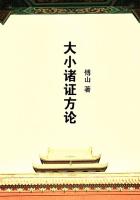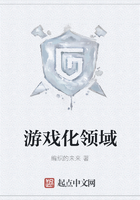Given this conviction that the spiritual phenomena do occur (my evidence for which is complex but rational), we then collide with one of the worst mental evils of the age. The greatest disaster of the nineteenth century was this: that men began to use the word "spiritual" as the same as the word "good."
They thought that to grow in refinement and uncorporeality was to grow in virtue. When scientific evolution was announced, some feared that it would encourage mere animality. It did worse: it encouraged mere spirituality. It taught men to think that so long as they were passing from the ape they were going to the angel.
But you can pass from the ape and go to the devil. A man of genius, very typical of that time of bewilderment, expressed it perfectly.
Benjamin Disraeli was right when he said he was on the side of the angels. He was indeed; he was on the side of the fallen angels.
He was not on the side of any mere appetite or animal brutality; but he was on the side of all the imperialism of the princes of the abyss; he was on the side of arrogance and mystery, and contempt of all obvious good. Between this sunken pride and the towering humilities of heaven there are, one must suppose, spirits of shapes and sizes. Man, in encountering them, must make much the same mistakes that he makes in encountering any other varied types in any other distant continent. It must be hard at first to know who is supreme and who is subordinate.
If a shade arose from the under world, and stared at Piccadilly, that shade would not quite understand the idea of an ordinary closed carriage. He would suppose that the coachman on the box was a triumphant conqueror, dragging behind him a kicking and imprisoned captive. So, if we see spiritual facts for the first time, we may mistake who is uppermost. It is not enough to find the gods; they are obvious; we must find God, the real chief of the gods.
We must have a long historic experience in supernatural phenomena--in order to discover which are really natural. In this light I find the history of Christianity, and even of its Hebrew origins, quite practical and clear. It does not trouble me to be told that the Hebrew god was one among many. I know he was, without any research to tell me so. Jehovah and Baal looked equally important, just as the sun and the moon looked the same size. It is only slowly that we learn that the sun is immeasurably our master, and the small moon only our satellite. Believing that there is a world of spirits, I shall walk in it as I do in the world of men, looking for the thing that I like and think good.
Just as I should seek in a desert for clean water, or toil at the North Pole to make a comfortable fire, so I shall search the land of void and vision until I find something fresh like water, and comforting like fire; until I find some place in eternity, where I am literally at home. And there is only one such place to be found.
I have now said enough to show (to any one to whom such an explanation is essential) that I have in the ordinary arena of apologetics, a ground of belief. In pure records of experiment (if these be taken democratically without contempt or favour) there is evidence first, that miracles happen, and second that the nobler miracles belong to our tradition. But I will not pretend that this curt discussion is my real reason for accepting Christianity instead of taking the moral good of Christianity as I should take it out of Confuciani**.
I have another far more solid and central ground for submitting to it as a faith, instead of merely picking up hints from it as a scheme. And that is this: that the Christian Church in its practical relation to my soul is a living teacher, not a dead one.
It not only certainly taught me yesterday, but will almost certainly teach me to-morrow. Once I saw suddenly the meaning of the shape of the cross; some day I may see suddenly the meaning of the shape of the mitre. One fine morning I saw why windows were pointed; some fine morning I may see why priests were shaven. Plato has told you a truth; but Plato is dead. Shakespeare has startled you with an image; but Shakespeare will not startle you with any more.
But imagine what it would be to live with such men still living, to know that Plato might break out with an original lecture to-morrow, or that at any moment Shakespeare might shatter everything with a single song. The man who lives in contact with what he believes to be a living Church is a man always expecting to meet Plato and Shakespeare to-morrow at breakfast. He is always expecting to see some truth that he has never seen before. There is one only other parallel to this position; and that is the parallel of the life in which we all began. When your father told you, walking about the garden, that bees stung or that roses smelt sweet, you did not talk of taking the best out of his philosophy. When the bees stung you, you did not call it an entertaining coincidence.
When the rose smelt sweet you did not say "My father is a rude, barbaric symbol, enshrining (perhaps unconsciously) the deep delicate truths that flowers smell." No: you believed your father, because you had found him to be a living fountain of facts, a thing that really knew more than you; a thing that would tell you truth to-morrow, as well as to-day. And if this was true of your father, it was even truer of your mother; at least it was true of mine, to whom this book is dedicated. Now, when society is in a rather futile fuss about the subjection of women, will no one say how much every man owes to the tyranny and privilege of women, to the fact that they alone rule education until education becomes futile: for a boy is only sent to be taught at school when it is too late to teach him anything. The real thing has been done already, and thank God it is nearly always done by women. Every man is womanised, merely by being born. They talk of the masculine woman; but every man is a feminised man. And if ever men walk to Westminster to protest against this female privilege, I shall not join their procession.













